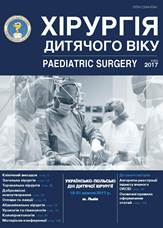Pleuro-pulmonary complications in patients with chistic fibros
DOI:
https://doi.org/10.15574/PS.2017.57.28Keywords:
cystic fibrosis, pleuro-pulmonary complications, childrenAbstract
Cystic fibrosis (CF) is an autosomal-recessive genetic disease characterized by a clinical triad: chronic pulmonary disease (chronic cough with purulent expectoration, dyspnoea, cyanosis, digital hippocratism), pancreatic insufficiency with maldigestion, malabsorption (fecal mass with lipid inclusions, fetide, bulky) weighting and increased content of chlorides in the sweat. In the study are evaluated the clinic and imagistic sings of the lungs in 80 patients with CF by imagistic techniques. The main clinical manifestations in CF patients under study have been recorded in episodes of tremendous bronchial obstruction that is manifested by recurrent wheezing, persistent cough syndrome. The progressive evolution of the pulmonary pathological process was determined by resistant germs such as Ps. aerugenosa, St. maltophilia, S. aureus, B. cepia complex, which accelerated the destructive processes of the pulmonary parenchyma, and contributes to the spread of pulmonary fibrosis, bronchiectasis, emphysema, pulmonary destruction, focal or diffuse fibrosis, pleurisy, pneumathorax, all seen and diagnosed in imaging exams. During the surveillance, the following complications were identified – pneumothorax, pleurisy (requiring toracocentesis), air bubbles, pulmonary empyema, pulmonary destruction, that developed in CF patients with exacerbations of S. aureus, Ps. aeruginosa, B. cepacia lung infections. Synthesis of literature data and clinical experience has made it possible to optimize treatment programs for patients with CF to reduce the risk of progressive adverse evolutions, pleuro-pulmonary complications. Contemporary, long-term treatment in CF offers better quality of life, especially gene therapy.Downloads
Issue
Section
License
The policy of the Journal “PAEDIATRIC SURGERY. UKRAINE” is compatible with the vast majority of funders' of open access and self-archiving policies. The journal provides immediate open access route being convinced that everyone – not only scientists - can benefit from research results, and publishes articles exclusively under open access distribution, with a Creative Commons Attribution-Noncommercial 4.0 international license(СС BY-NC).
Authors transfer the copyright to the Journal “PAEDIATRIC SURGERY.UKRAINE” when the manuscript is accepted for publication. Authors declare that this manuscript has not been published nor is under simultaneous consideration for publication elsewhere. After publication, the articles become freely available on-line to the public.
Readers have the right to use, distribute, and reproduce articles in any medium, provided the articles and the journal are properly cited.
The use of published materials for commercial purposes is strongly prohibited.

